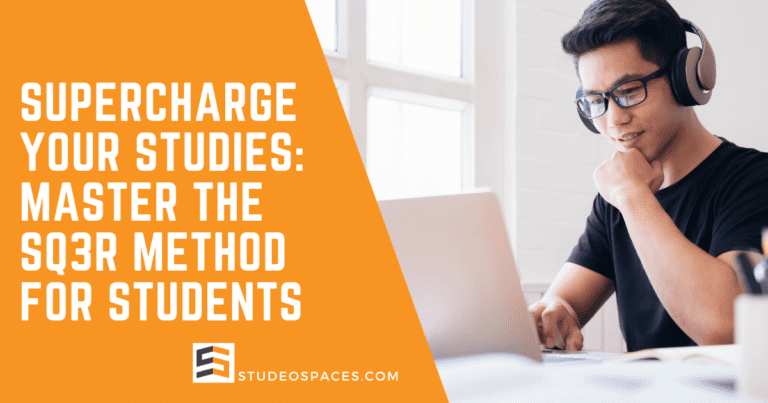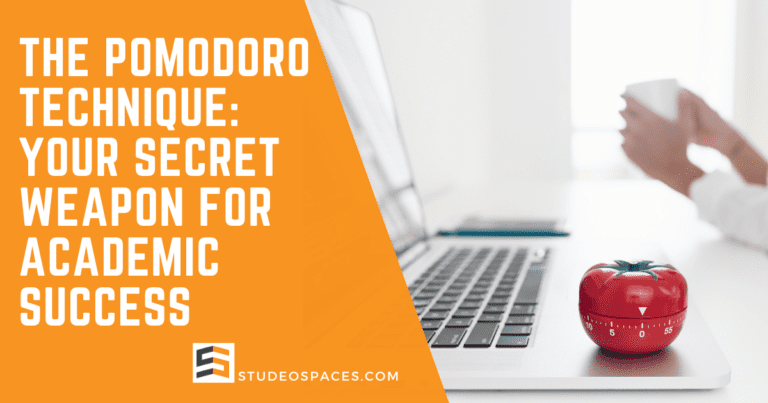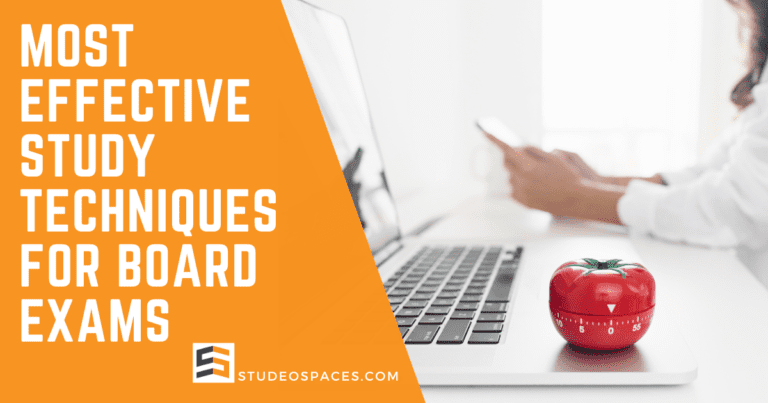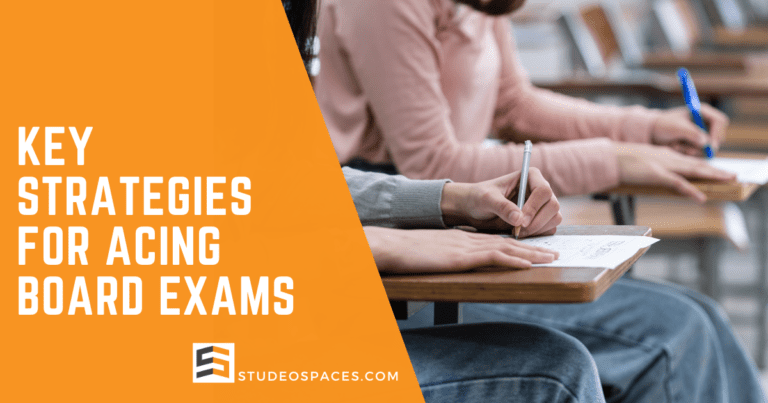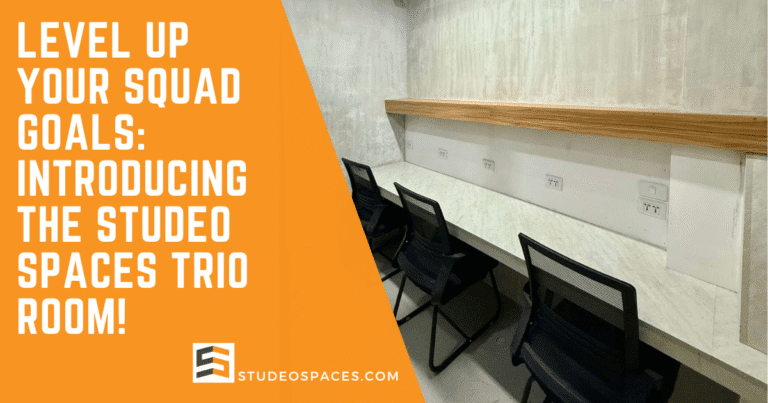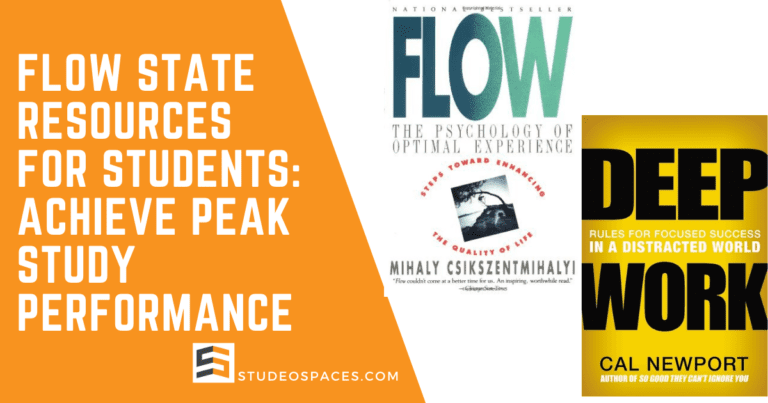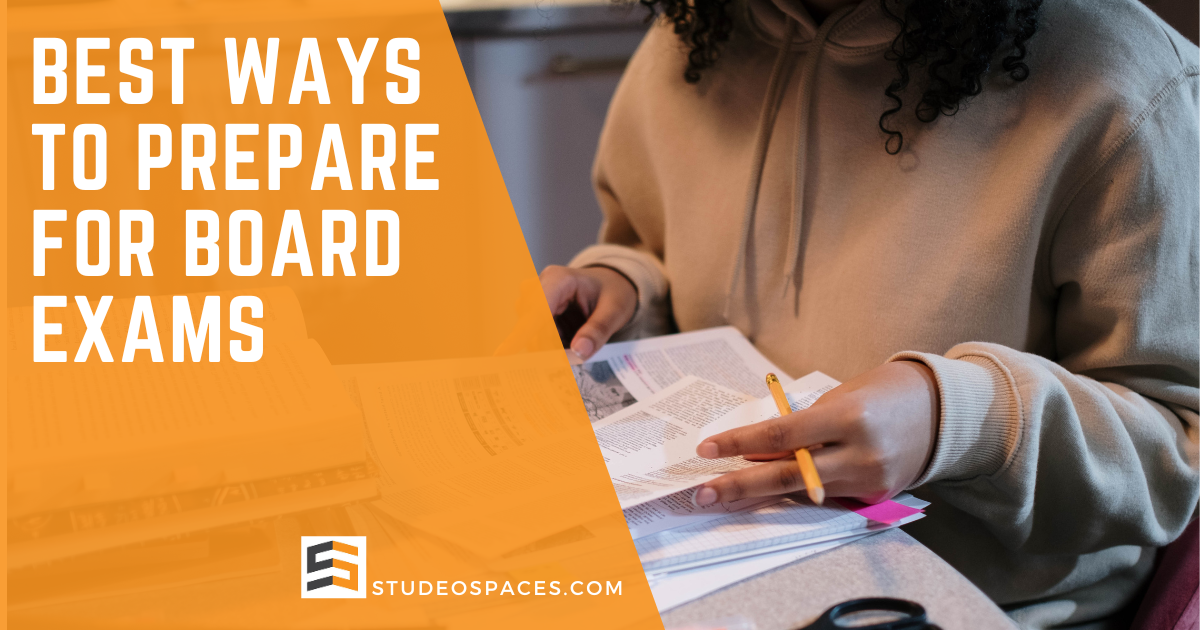
Preparing for board exams can be stressful, but with the right strategies, students can succeed and perform their best. Key techniques such as creating a structured study schedule, practicing past papers, and maintaining a healthy lifestyle make a significant difference.
One of the most effective ways to enhance preparation is by studying in a dedicated environment like the Studeo Spaces Study Hub. Located in Sampaloc, this unique destination promotes hyper-productivity and concentration, helping students reach their full potential by escaping distractions and immersing themselves in a state of “Flow.” With its supportive atmosphere, Studeo Spaces Study Hub ensures students can focus on their studies and achieve their goals, making it an ideal spot for exam preparation.
Have you ever wondered how some students excel in board exams while others struggle? The secret often lies in their preparation strategies. Preparing for board exams can be daunting, but anyone can achieve outstanding results with the right approach.
Setting Clear Goals
Define Your Objectives
Knowing what you aim to achieve is crucial before diving into your books. Having a clear set of goals will help you stay focused and motivated. Set both short-term and long-term academic goals.

Specific and Measurable Goals
Instead of vague goals like “do well in math,” aim for something more concrete, such as “score at least 90% in the upcoming math exam.” This way, you know exactly what you are working towards.
Realistic Expectations
While it’s great to aim high, ensure your goals are realistic. Setting unattainable goals can lead to unnecessary stress and disappointment. Balance ambition with practicality.
Understanding the Syllabus
Know Your Curriculum
Familiarize yourself with the entire syllabus for each subject. Understanding the full scope of what needs to be covered will allow you to allocate your time and resources more efficiently.
Break Down the Syllabus
Divide the syllabus into manageable chunks. Small, specific sections are easier to tackle and less intimidating than looking at the syllabus as one giant list.
Prioritize Topics
Identify the most important and weighty topics—those that are most likely to appear in the exams. Prioritize these areas in your study schedule.
Creating a Study Schedule
Daily Routine
A consistent daily routine is the bedrock of effective preparation. Plan your day in advance, allotting specific time slots for studying, breaks, and leisure activities.
Weekly and Monthly Plans
In addition to daily plans, create weekly and monthly study schedules that outline the subjects and topics you intend to cover. Review and adjust these schedules regularly.
Balance and Flexibility
While discipline is essential, your study plan should also be flexible to account for unexpected interruptions or difficulties with certain topics.
Effective Study Techniques
Active Learning
Passive reading won’t get you far. Engage with the material actively by summarizing information in your own words, asking questions, and discussing topics with peers.
The Pomodoro Technique
This popular time-management method involves studying for 25 minutes and then taking a 5-minute break. It’s known to improve concentration and productivity.
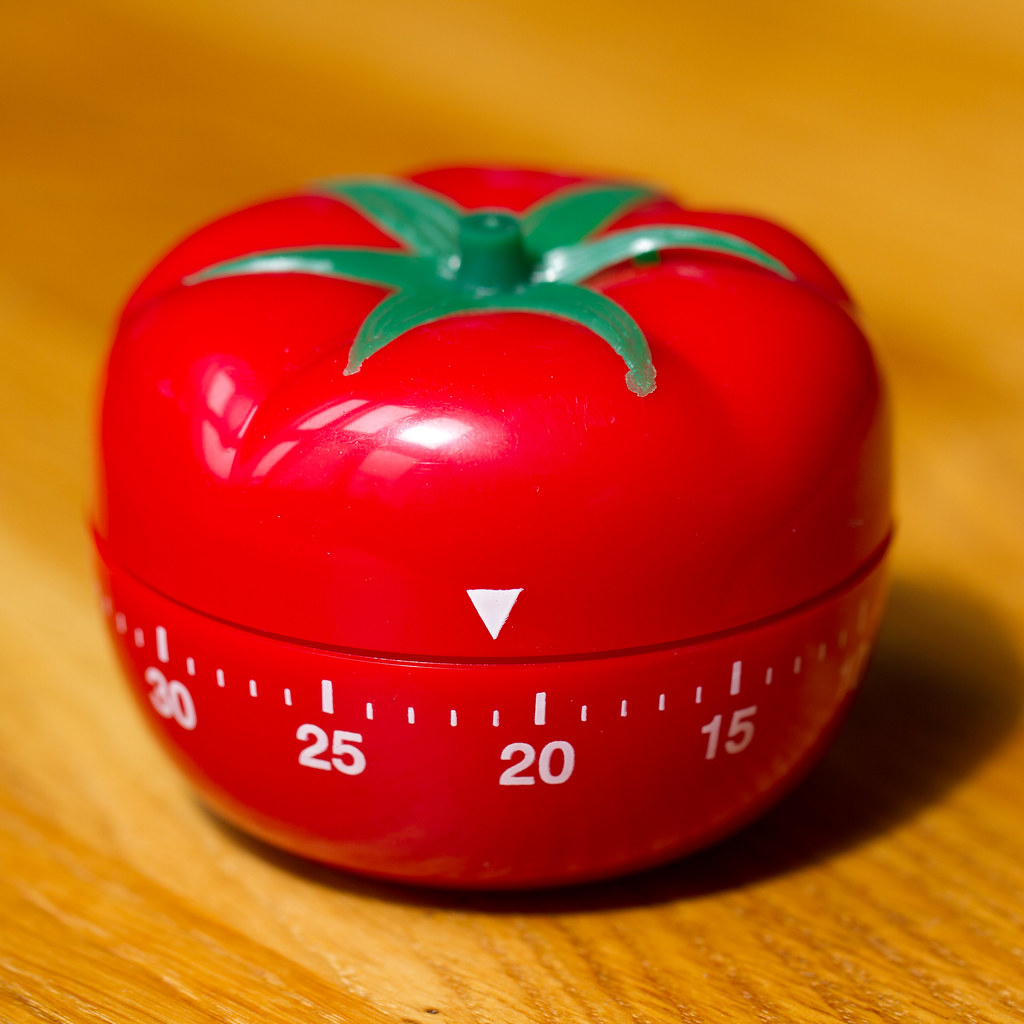
Mind Mapping
Create visual diagrams to organize and connect different pieces of information. Mind mapping can help make complex topics easier to understand and remember.

Practice and Application
Previous Years’ Papers
Solving past exam papers and sample papers gives you a real sense of the exam format and the types of questions that are frequently asked.
Mock Tests
Take timed mock tests that simulate actual exam conditions regularly. This will help you manage time better and reduce anxiety during the exam.
Practical Application
Make sure to engage in hands-on practice for subjects that involve practical skills, such as sciences and math.
Staying Healthy
Balanced Diet
A well-balanced diet is essential for maintaining physical and mental health. Eat plenty of fruits, vegetables, proteins, and whole grains.
Exercise
Physical exercise boosts brain function and relieves stress. Make it a point to engage in some form of physical activity every day.
Sleep
Sleep is crucial for memory consolidation and cognitive function. Aim for at least 7-8 hours of sleep every night, especially before the exam day.

Managing Stress
Relaxation Techniques
Incorporate techniques such as deep breathing, meditation, or yoga into your daily routine to manage stress and anxiety.
Hobby Time
Pursuing hobbies can provide a much-needed break and refresh your mind. Engage in activities that you enjoy and that help you relax.
Support System
Surround yourself with a supportive network of friends, family, and teachers. Don’t hesitate to seek help when you need it.
Utilizing Resources
Textbooks and Notes
Primary textbooks and class notes should be your main study resources. Make sure you understand and can apply the information contained in them.
Online Resources
Numerous online platforms offer educational videos, practice quizzes, and interactive lessons that can complement your study routine.
Study Groups
Joining or forming study groups can be beneficial. Discussing topics and teaching each other can reinforce your understanding and recall abilities.

Technological Aids
Educational Apps
There are countless apps designed to aid studying. Apps for flashcards, note-taking, and time management can be particularly helpful.
Online Forums
Participate in educational forums and online communities. These can be valuable for answering your queries and getting different perspectives on difficult topics.
Digital Notes
Consider using digital tools for note-taking. Platforms like Evernote and Microsoft OneNote can help organize your notes efficiently and make them easily accessible.
Studeo Spaces Study Hub: A Game Changer
The Concept of “Flow State”
At Studeo Spaces Study Hub, they emphasize the importance of creating an environment that fosters a state of hyper-productivity and concentration known as the “Flow State.” This state allows individuals to unlock their full potential and immerse themselves fully in their tasks.
What Studeo Spaces Offers
Located in Sampaloc, Studeo Spaces Study Hub is a unique and meticulously designed space that caters to individuals who need an optimal atmosphere for studying or working. Unlike traditional co-working spaces, this hub focuses solely on helping individuals achieve their academic and professional goals.
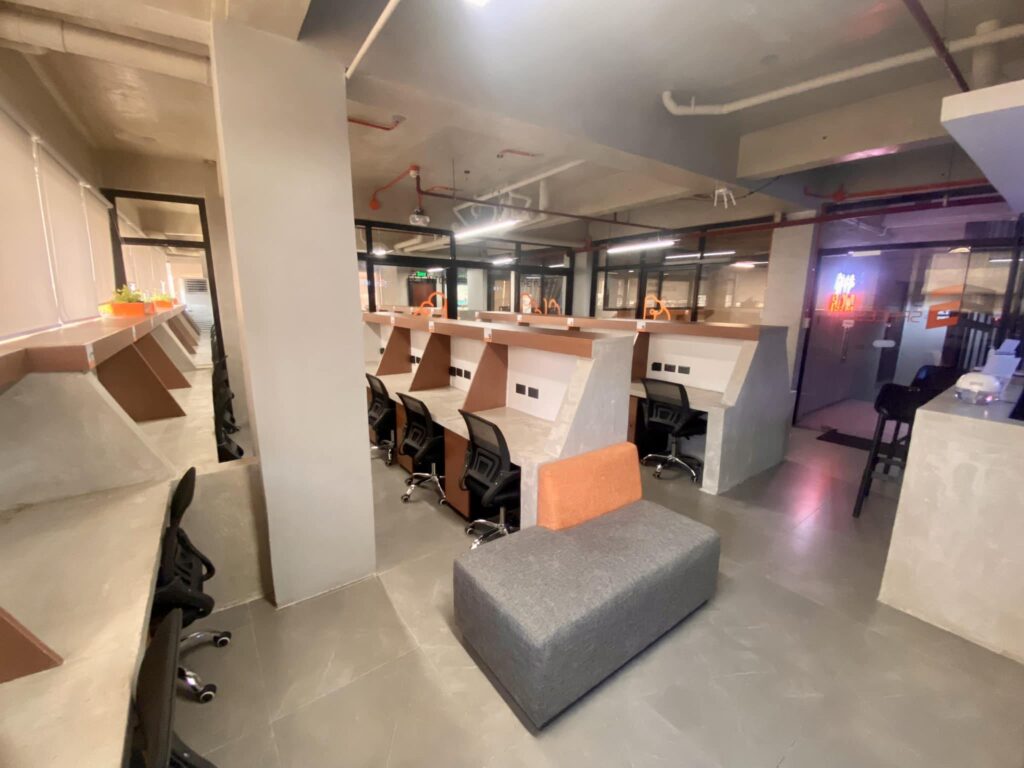
Features and Facilities
Studeo Spaces Study Hub provides an array of features aimed at helping students and professionals achieve peak performance. These include:
- Quiet Study Areas: Allows students to concentrate without any distractions.
- Comfortable Seating: Ergonomically designed furniture to ensure comfort during long study sessions.
- High-Speed Internet: Reliable internet to facilitate uninterrupted online study sessions.
- Refreshment Zone: Healthy snacks and beverages to keep energy levels up.
Feedback from Users
Many students and professionals who have used Studeo Spaces Study Hub report significantly improved productivity and focus. The environment is tailored to minimize distractions and maximize efficiency, making it an ideal place to prepare for board exams.
The Tagline: “Get Into the Flow”
The tagline encapsulates their commitment to helping individuals reach a state of hyper-focus and productivity. Whether preparing for exams or enhancing professional performance, Studeo Spaces Study Hub provides the perfect environment to thrive.

Revision Strategies
Regular Reviews
Revisiting topics regularly helps solidify your understanding and recall. Make it a habit to review notes weekly.
Flashcards
Utilize flashcards for quick revision of key terms and concepts. They are portable and can be reviewed anywhere.
Summarization
Summarize each chapter or topic in brief notes. This distillation process enhances comprehension and retention.
Exam Day Preparation
Arrive Early
Ensure you arrive at the exam venue well before time to settle down and get into the right frame of mind.
Essential Supplies
Carry all necessary items such as pens, pencils, erasers, and any allowed reference materials. Double-check the requirements beforehand.
Stay Calm
It’s natural to feel anxious, but try to stay as calm as possible. Take deep breaths and maintain a positive mindset.

Post-Exam Analysis
Review Your Performance
After the exam, take some time to review your performance. Identify areas where you did well and those that need improvement.
Learn from Mistakes
Analyze your mistakes critically but constructively. Understanding where you went wrong can provide valuable insights for future exams.
Celebrate Achievements
Regardless of the results, acknowledge your hard work in preparing for the exams and celebrate your efforts and achievements.
Continuous Learning
Lifelong Learning
Remember that learning doesn’t stop after exams. Adopt a mindset of continuous learning and self-improvement.
Stay Curious
Stay curious and open to new information and experiences. This attitude will serve you well both academically and in life.
Future Planning
Use the experience from preparing for board exams to plan for future academic or professional endeavors.
Conclusion
Preparing for board exams is a multifaceted process that involves clear goal-setting, understanding the syllabus, effective study techniques, regular practice, maintaining good health, managing stress, and utilizing the right resources. By applying these strategies, students can significantly enhance their chances of success.
Studeo Spaces Study Hub offers a unique and supportive environment that helps individuals reach their maximum potential, making it a valuable resource for anyone preparing for exams. Remember, achieving success in board exams is not just about hard work but also about working smart and maintaining a balanced approach.
So, next time you’re gearing up for board exams, why not try these strategies and see the difference they can make!
Please check out the Studeo Spaces Study Hub Official Website and follow the Studeo Spaces Study Hub Facebook Page and Studeo Spaces Study Hub TikTok Channel for announcements, news, and updates.
Studeo Spaces Quick Links
- Book a Desk / Room
- Location
- Rates
- Features and Amenities
- Business Hours
- Private Rooms
- Latest News
Stay Connected
- Facebook: https://www.facebook.com/StudeoSpaces
- Tiktok: https://www.tiktok.com/@studeospaces
- Youtube: https://www.youtube.com/@StudeoSpaces
